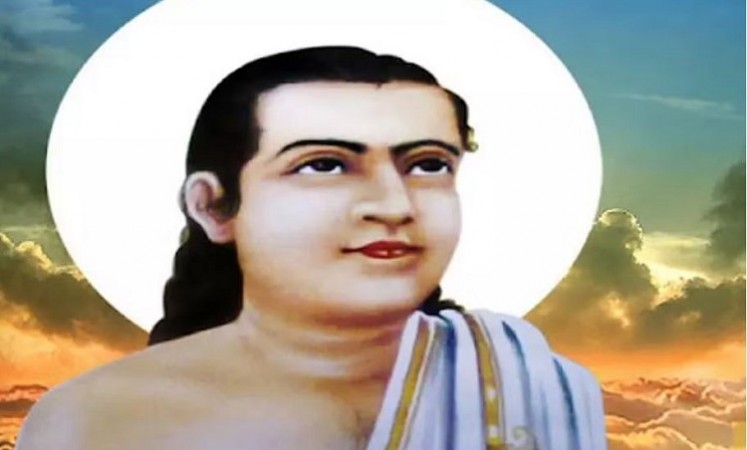
On August 18th, a significant cultural celebration takes place, honoring the Tithi of Srimanta Sankardeva, a towering figure in the history of Assam, India. Srimanta Sankardeva, also known as Mahapurush Srimanta Sankardeva, was a 15th-century saint, poet, playwright, and cultural icon who left an indelible mark on Assamese society and beyond. His Tithi, or death anniversary, is observed with great reverence, reflecting his enduring influence on religious, social, and artistic dimensions of the region.
Life and Legacy of Srimanta Sankardeva: Srimanta Sankardeva was born in 1449 in the village of Alipukhuri in present-day Nagaon district, Assam. He emerged as a spiritual leader, reformer, and cultural architect, shaping the religious and artistic landscape of Assam during a time of political upheaval and cultural transformation.
Sankardeva's contributions are vast and multifaceted. He propagated the Bhakti movement in Assam, emphasizing devotion to a formless, omnipresent God. He composed numerous devotional songs, called Borgeets, that captured the essence of his spiritual philosophy. His teachings aimed to bridge the gap between various social classes and promote harmony among different communities.
Cultural Revival and Artistic Contributions: One of Sankardeva's remarkable achievements was the revival of the classical dance form known as Sattriya. He established the Sattras, monastic institutions that became centers of artistic expression, spiritual learning, and community service. Sattriya dance, which draws inspiration from Indian classical dance forms, found its renaissance through Sankardeva's efforts. Today, Sattriya is recognized as one of the eight classical dance forms of India.
Sankardeva's contributions extended to literature and drama as well. He composed plays known as Bhaona, which combined entertainment with spiritual messages. These plays were performed in open-air stages and had a profound impact on the cultural consciousness of Assamese society. His literary works, like the "Kirtan Ghosa," continue to inspire generations of readers and scholars.
Observing the Tithi: The Tithi of Srimanta Sankardeva is observed with various events and programs that highlight his teachings, contributions, and their relevance in modern times. Devotees gather in Sattras and cultural institutions to pay homage to his legacy through devotional songs, dance performances, recitations of his literary works, and discussions on his philosophy.
One of the most significant aspects of the Tithi observance is the display of Bhaona performances. These colorful and spiritually enriching plays depict stories from Hindu epics and impart moral and ethical lessons to the audience. The performances are accompanied by traditional musical instruments and intricate costumes, creating a captivating experience that transports the audience to another time.
Continuing Relevance: Srimanta Sankardeva's teachings and contributions remain relevant in the contemporary world. His emphasis on social harmony, spiritual devotion, and artistic expression resonates with people seeking meaning and connection in their lives. His philosophy promotes inclusivity and unity, making it particularly pertinent in a diverse and globalized society.
As the Tithi of Srimanta Sankardeva is observed on August 18th, it serves as a reminder of the enduring impact of his life's work. His legacy continues to thrive through the efforts of artists, scholars, and cultural enthusiasts who work tirelessly to preserve and promote Assamese culture and values.
The celebration of the Tithi of Srimanta Sankardeva is a homage to a visionary who transformed the cultural, spiritual, and artistic landscape of Assam. His contributions have left an indelible mark on the region's identity and continue to inspire individuals worldwide. As the world observes this day, let us remember the profound teachings of Srimanta Sankardeva and strive to embrace the values of unity, devotion, and cultural enrichment that he championed throughout his life.